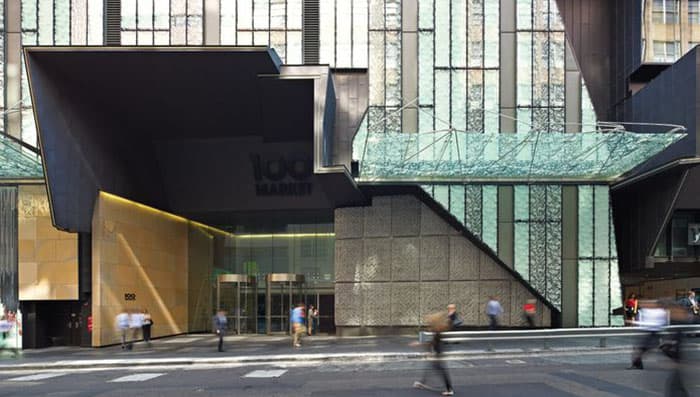
Link REIT completed the acquisition of 100 Market Street from Blackstone amid the pandemic
Commercial real estate investment in Asia Pacific collapsed in the first quarter of the year — falling 34 percent from the same period in 2019 — to record an aggregate transaction value of just $29.5 billion for the period, according to the latest figures from JLL.
The wealthiest city in the region took the biggest hit, with Hong Kong transaction volume falling 74 percent, as the COVID-19 pandemic amplified an economic downturn initially sparked by last year’s anti-government protests.
Singapore fared only marginally better, recording a drop in deal value of 68 percent during the first quarter after a full year increase of 26 percent in 2019. Mainland China saw a decline of 61 percent during the period from January through March, as investors withdrew to the sidelines as analysts predict a pause in deals pending a potential reset of property values.
Waiting for Values to Stabilise
JLL’s Asia Pacific CEO of capital markets, Stuart Crow, told Mingtiandi that investment activity is expected to bounce back in the latter half of this year, but predicted that dealmaking will remain quiet in the second quarter.

JLL’s Stuart Crow said investment activity is set to bounce back in the latter half of the year
“Markets are largely on hold and investors which have paused activity due to the uncertainty across the markets have gone into price discovery mode, with the result that any dealmaking won’t be completed until at least the third quarter,” Crow said.
The property consultancy noted that appetite for office assets was still strong in the region, despite a 35 percent drop in deal volumes within the sector during the period.
The JLL capital markets chief, who is based in Singapore, noted that the current situation is very different from the global financial crisis of 2008 when there was acute distress in the credit markets with many investors facing cash crises.
“In the current situation, on the other hand, there are very few forced sales and a huge amount of capital sitting on the sidelines in the hands of institutional investors which was not available back then,” Crow added.
Completing Deals in Progress
Despite the backdrop of uncertainty, dealmaking has not disappeared completely this year, with Hong Kong’s Link REIT and Singapore’s GIC pushing forward with Australia transactions this month.
Link REIT completed its A$683 million ($430 million) purchase of 100 Market Street in Sydney just last week, after originally agreeing to buy the office asset from Blackstone during December.
One week prior to that deal in the New South Wales capital, GIC executed its latest Aussie office investment, setting up a joint venture with ASX-listed REIT Dexus to pay A$644 million for a combined 50 percent stake in Melbourne’s Rialto Towers.
Analysts have pointed out, however, that a high percentage of the deals finalised during the first part of the year represented transaction in progress before the pandemic struck and withdrawal would likely have incurred significant financial costs to the parties involved.
Waiting on the Sidelines
With travel restrictions bringing an end to site visits and cross-border deals becoming scarce, investment activity in mainland China so far this year has been dominated by domestic players.
In a deal first reported in January, mainland China bad asset bank China Cinda Asset Management acquired the 26-storey Shanghai HNA Tower from HNA Group for a reported RMB 3.5 billion.
In another transaction agreed to during the first month of the year, Shanghai government-controlled investment bank Haitong Securities agreed to buy a trio of office buildings worth a combined RMB 7.5 billion ($1.1 billion) in a Greenland Group project on Shanghai’s Bund.
South Korea, which has been less dependent on cross-border investment, saw a 32 percent increase in deal volume during the first quarter, according to JLL, although the property consultancy noted that many of these deals were completed this year after having been signed in 2019.
The Singapore market recorded a historic peak of $15.6 billion in investment activity in 2019 thanks in part to big-ticket cross-border deals such as Allianz and Gaw Capital Partners jointly acquiring the Duo complex for S$1.6 billion ($1.1 billion) However, after rising rents helped drive up values last year, during 2020 the COVID-19 crisis has added to existing caution over the city’s heightened risk of recession, according to JLL.
Retail Restructuring Accelerates
While Asia Pacific’s major cities all suffered setbacks in the first quarter, the region’s biggest pandemic victim during the first three months of the year was the retail sector, according to JLL, as lockdowns and social distancing measures contributed to a 39 percent drop in investment in high street properties and shopping centres.
“The pandemic will accelerate a lot of the structural changes that were already happening in the market such as the movement towards data centres and multifamily assets, and the trend away from traditional retail to logistics, which is being driven by the rise in e-commerce,” Crow said.
With hotel bookings disappearing as flights were cancelled, investment in the hospitality sector across the region fell by 22 percent, with JLL noting that deals finalised early in the quarter in Japan and South Korea may have disguised some of the market’s weakness.
Leave a Reply